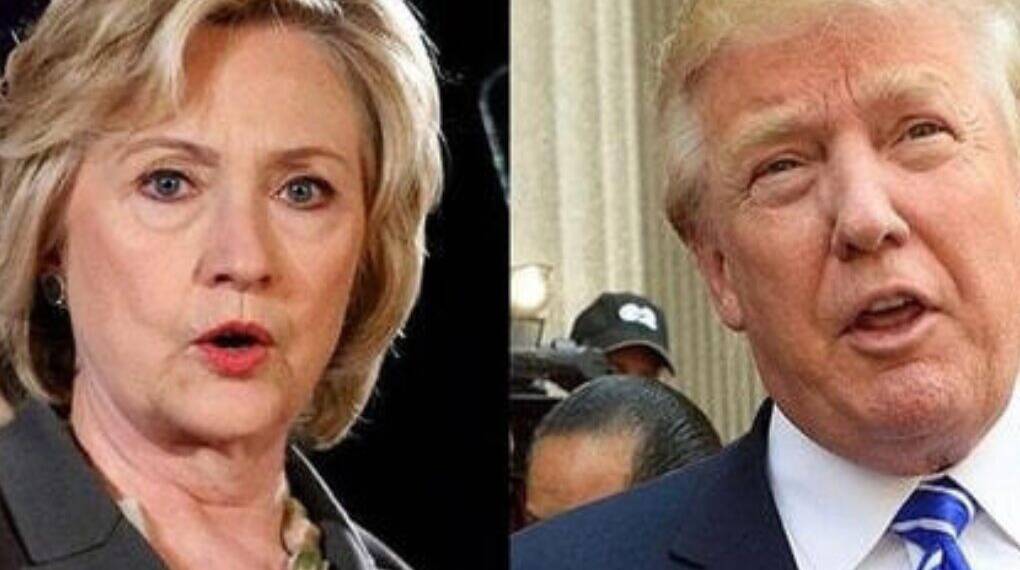In a rare moment of bipartisan concession, former U.S. Secretary of State Hillary Clinton has stated that she would “honestly” nominate President Donald Trump for the Nobel Peace Prize — if he successfully negotiates an end to the ongoing Russia-Ukraine war. Clinton remarked upon Friday’s episode of the Raging Moderates podcast, hosted by political commentator Jessica Tarlov.
The 77-year-old Democrat, who famously ran against Trump in the 2016 U.S. presidential election, emphasized that her willingness to support such a nomination would hinge on Trump brokering a peace deal that does not allow Russian President Vladimir Putin to seize Ukrainian territory.
“Honestly, if he could bring about the end to this terrible war, if he could end it without putting Ukraine in a position where it had to concede its territory to the aggressor, could really stand up to Putin — something we haven’t seen, but maybe this is the opportunity — if President Trump were the architect of that, I’d nominate him for a Nobel Peace Prize,” Clinton said.
Her comments reflect both the gravity of the conflict and her determination to protect Ukraine’s sovereignty. Clinton stressed that her ultimate goal is to ensure there is no capitulation to the Kremlin. “Because my goal here is to not allow capitulation to Putin,” she added.
A High-Stakes Meeting in Alaska
Clinton’s remarks come as Trump heads into a high-profile meeting with Russian President Vladimir Putin in Anchorage, Alaska. The discussions are scheduled to take place at 11 a.m. local time (1900 GMT) at Joint Base Elmendorf-Richardson — a Cold War-era military facility with historical significance in U.S.-Russia relations.
According to the White House, the meeting will begin with a one-on-one session between Trump and Putin, followed by broader delegation-level talks. The war in Ukraine is expected to dominate the agenda, alongside discussions on nuclear arms control and the broader state of U.S.-Russia relations.
Trump’s Position on Peace Talks
Speaking to reporters aboard Air Force One en route to Alaska, Trump said he would let Ukraine decide whether to engage in territorial compromises with Russia. His comments, however, stopped short of ruling out the possibility of land concessions, something Kyiv has repeatedly rejected.
“It actually hurts him, but in his (Putin’s) mind that helps him make a better deal if they can continue the killing,” Trump said of the Russian president’s negotiating tactics. “He’s a smart guy, been doing it for a long time, but so have I … we get along, there’s a good respect level on both sides, and I think, you know, something’s going to come of it.”
The remarks underscore Trump’s belief that his personal rapport with Putin could pave the way for an agreement — a stance that has drawn both optimism and skepticism from international observers.
A Rare Cross-Party Acknowledgment
Clinton’s statement is notable given her contentious history with Trump, which includes one of the most bitterly fought presidential campaigns in modern U.S. history. While she has often been critical of his foreign policy approach, her willingness to credit him for a hypothetical peace breakthrough signal that the stakes of the Ukraine war transcend partisan rivalries.
The Russia-Ukraine conflict, now stretching into years of bloodshed and displacement, has become a litmus test for global leadership. The possibility of a peace settlement that preserves Ukraine’s territorial integrity remains uncertain, but Clinton’s comments reflect the broad recognition that such an achievement would be historically significant — regardless of who delivers it.
As the world watches the Alaska summit, the potential for progress remains unclear. What is certain is that any genuine resolution to the war, if achieved without compromising Ukraine’s sovereignty, would not only reshape the geopolitical landscape but could also forge unexpected moments of political unity — as Clinton’s remarks suggest.
For now, the Nobel Peace Prize remains a hypothetical outcome, but the conversations set to take place at Joint Base Elmendorf-Richardson could mark a pivotal moment in the pursuit of peace.








